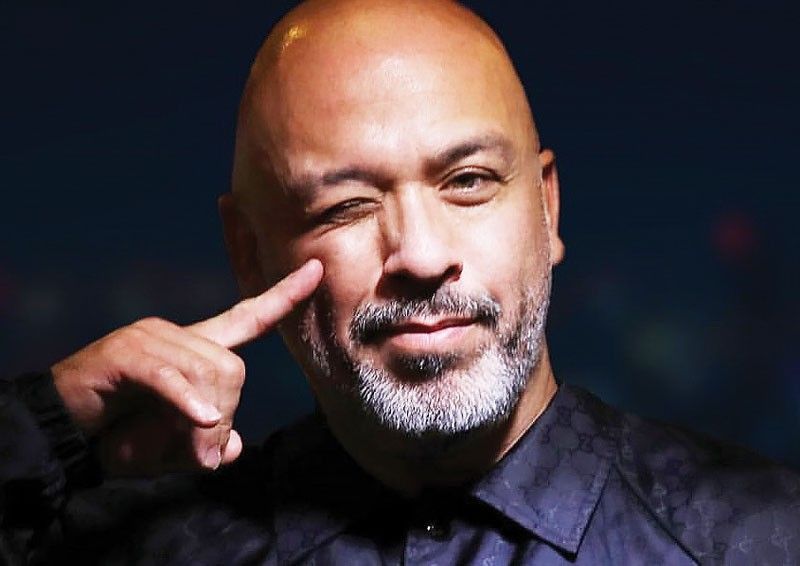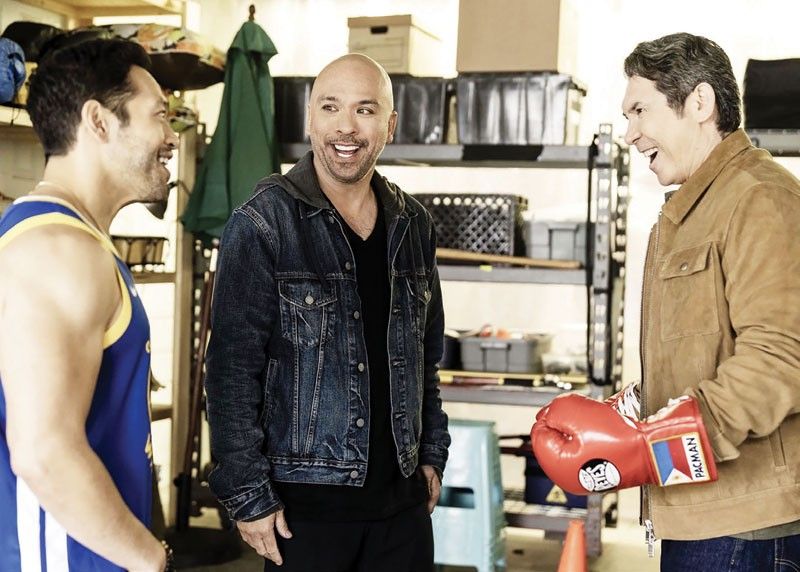Why Jo Koy loves talking about being Pinoy on stage

MANILA, Philippines — Even though he’s selling out shows, Filipino-American stand-up comedian Jo Koy still randomly goes to small open mics to workshop his jokes and keep himself grounded.
“I’m in my element during open mics because the people there didn’t come to see me,” he said during a virtual chat to promote the Manila leg of his Funny is Funny World Tour on Aug. 31 at the Mall of Asia (MOA) Arena.
Showing up at open mics is also apparently to keep an eye on emerging comics, whom he said have been his source of laughter these days. In fact, when he last came to the Philippines in 2020, he arrived unannounced at a small bar in Quezon City and discovered three local comedians whom he invited to open for his show.
His 2020 Netflix special, Jo Koy: In His Elements, which featured his old neighborhood in Cubao, showcased a variety of Filipino artists, not just stand-up comics. And he continues to do this because he wants the world to know about the Filipino talent.
Jo Koy, whose real name is Joseph Glenn Herbert, is known for his comedy that also pokes fun at his Filipino mom, family and identity.
In his 2021 memoir Mixed Plate: Chronicles of an All-American Combo (an e-Book version is available on Amazon for around P600), the 51-year-old said he loved talking about his Filipino side because when his family struggled in the US after the divorce of his parents (his mom used to be a Filipino band manager while his dad a US military man), it was the Filipino community that became a refuge.

In a way, he got his start as a kid entertaining fellow immigrants in Sunday salu-salo gatherings at a Catholic church hall. During their first attendance, his mom, Josephine Magluyan, told him to do a Michael Jackson impersonation. His performance meant so much to his mom that she gave him a gift she herself made, “a white sparkly glove like Michael Jackson’s.”
“People these days like to ask me why I talk about being Filipino so much onstage. After all, I’m a half-breed, just as white as I am Filipino. And I’m not ashamed of the Caucasian side of my identity. In a lot of ways, it’s shaped me just as much as the Filipino side,” he said.
“But when shit got real for my mom and our family, when we had nowhere to turn and desperately needed help, the Filipinos took us in, no questions asked. They never looked at me and said, ‘Hey, where’s your dad’s family? Why don’t you go hang out with them and eat their food?’ They accepted me — both of my halves — for exactly who I was. They accepted our whole family, my brother with his outbursts. My adopted sister. All of us. I was home. I still have that glove to this day.”
In his memoir, Jo Koy also spoke about how comedy wasn’t just his “escape” from troubles at home, but it also helped him find himself and eventually, come to terms with his Filipino identity.
“Ever since I was a little kid who was confused about his identity, insecure about his half-breed background, I had one thing to fall back on — I was funny. That was my identity,” he recalled.
After graduating from high school, he would compete (and fail) in stand-up contests before finding a regular gig at a coffee shop in Vegas in the early ‘90s. He would build his career from there despite objections from his mom who wanted him to become either a doctor or lawyer, not a “clown.” It would take him about 16 years before he started incorporating Filipino-themed jokes into his act, and the first hit was about his mom.
“It wasn’t that I didn’t want to talk about it. I just didn’t know how to talk about it and make it funny. One important thing that I always want to do is make sure that it is funny. How to, you know, involve my mom and our relationship and talk about Filipino people in a funny way, without making fun of them. Or, how to tell their story and make it relatable. And that takes a while,” he previously told The STAR.
Jo Koy slowly figured out how after he inserted a “small snippet of a material” about his mother playing Nintendo Wii with his son on Christmas into one stand-up performance. It would take off and become one of his most popular jokes ever.
“I realized I didn’t have to be so afraid of people not understanding my background. By talking about my Filipino family and all their quirks, I wasn’t shutting my audience out, I was bringing them in, building bridges between our cultures and showing how much we all have in common,” Jo Koy further shared in his memoir.
“I wasn’t being a token ‘Asian comic’ in a theme show, and I wasn’t doing cheap ethnic jokes. I was telling stories. I was showcasing my complexity, I was embracing the silence. I was being human. I finally learned that the best way to entertain tons of people, to transcend categories and even race itself, was by simply being my mixed-up, half-breed self. It all clicked for me, just like that.
“It had taken more than 15 years of performing, 15 years of trial and error, lots of advice from other comics, and gaining the confidence I needed to finally be myself — completely and entirely me — onstage, but I was finally there. I understood exactly who I needed to be as a comedian, as a storyteller, as an artist.”
What he would call his “new mom-centered approach to comedy” also happened around the time he had his “breakthrough” in 2006 via an appearance on The Tonight Show with Jay Leno. Both “transformed” his career in a way that enabled him to focus on being a live stand-up comedian.
Nevertheless, what he would consider as a game changer was his first Netflix special, Jo Koy: Live from Seattle, after which his comedy tours sold out around the world. For one, he broke the record for most tickets sold in Honolulu that the mayor’s office proclaimed Nov. 24 as “Jo Koy Day.” Worth noting though is that Jo Koy faced rejection first from the international streaming service before it decided to acquire his special for its 2017 lineup.
“I had to put a lot of money into that but it was worth every penny. I mean, you have to invest in yourself or forget about it. I knew I had a great special in my head,” he said in a previous interview.
Making and producing it, “that was me 100 percent,” he added.
“I knew deep in my heart that Netflix was going to buy it from me. The pressure of delivering a good special and coming out with it, with the finances, was a big thing. But boy, once Netflix bought it from me, talk about instant relief overnight.”
He drew from his Netflix experience to offer advice to aspiring artists still waiting for their big break. He encouraged them to just do it and keep the dream alive, hard work always pays off and that people who reject you today, might be the same people who will say yes to you tomorrow.
Meanwhile, Jo Koy is bringing Funny is Funny to Manila before it becomes the latest addition to his collection of specials on Netflix. It appears that “Funny is Funny” is taken from his statements in his memoir and specials. In In His Elements, he told a budding Fil-Am comic, who was worried his audience in the Philippines might not get his jokes, that funny is funny, comedy is comedy, no matter the ethnicity or location of the audiences, and that “the only time they’re not gonna laugh is if you’re not funny.”
Tickets to his show are available on smtickets.com and its outlets. It is made possible by Live Nation Philippines, formerly Music Management International, the same group that brought Jo Koy’s successful comedy tours here in 2017 and 2020.
- Latest
- Trending

































